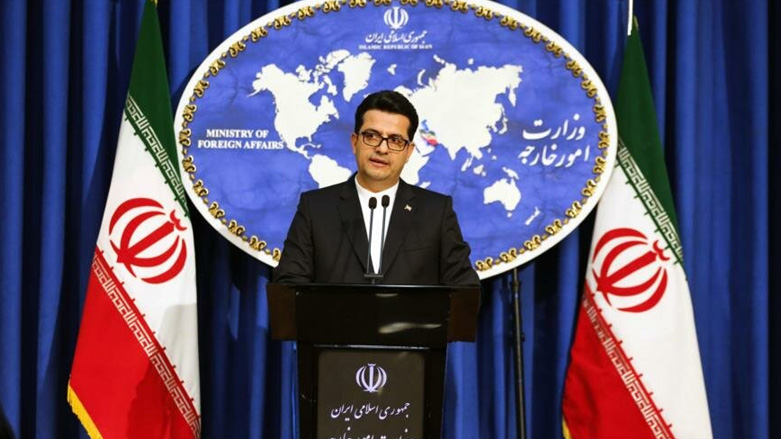Iran: We will continue to decrease compliance with nuclear deal

WASHINGTON DC (Kurdistan 24) — Iran’s Foreign Ministry Spokesman warned on Monday that Tehran would take further steps to reduce its compliance with the nuclear accord, formally known as the Joint Comprehensive Plan of Action (JCPOA), if other parties to the accord did not do more to help it deal with US sanctions.
Tehran’s next step would be more significant than its previous steps, Abbas Mousavi told journalists. “Iran is serious about making measures to reduce” its commitments under the JCPOA, he said, as he called on the European signatories to the agreement—France, Germany, Britain, and the European Union (EU)—to come up with a payment system that would allow Iran to continue its trade, including oil sales.
The Europeans have, indeed, produced such a financial system: INSTEX (Instrument in Support of Trade Exchanges.) However, INSTEX has failed to deliver the promised results, largely because the US applies sanctions on individual companies, and most European companies are unwilling to risk US penalties in order to trade with Iran.
Mousavi warned that if the problem continues, Tehran will be taking a “third step” to roll back its compliance with the JCPOA, “which will be firmer than the first and second ones.”
On July 1, Iran announced it had produced a uranium stockpile slightly above the limit set by the JCPOA. On July 8, it announced it had enriched uranium to a level slightly above the 3.67 percent limit, which was also set by the JCPOA.
Mousavi did not indicate what Iran’s next step would be, but on Sunday, the head of Iran’s Atomic Energy Organization, Ali Akbar Salehi, told lawmakers that the country is planning to resume activities at its Arak heavy water nuclear reactor, according to a parliamentarian, who attended Salehi’s briefing and later spoke to the Iranian media.
Heavy water can be used to produce plutonium for nuclear weapons. Under the JCPOA, Iran pledged to repurpose the Arak reactor so it could not be used to produce plutonium. However, The Times of Israel reported that Salehi, in an interview last January on Iranian television, explained that during the negotiations for the JCPOA, Iran had secretly purchased replacement parts for the equipment that it was required to destroy. Tehran anticipated, Salehi said, that the Western countries would renege on the nuclear accord and prepared itself accordingly
On the same day that Salehi spoke about resuming work on the Arak reactor, Iran’s Deputy Foreign Minister, Abbas Araghchi, met in Vienna with representatives of the six other parties that remain signatories to the JCPOA: the three European countries, the EU, plus Russia and China.
The aim of the meeting was to salvage the JCPOA. Afterwards, Araghchi told journalists, “The atmosphere was constructive, and the discussions were good.”
Tangible signs of progress are elusive, however, and other Iranian officials have spoken in much more belligerent terms, as noted above.
US officials have yet to react to the more belligerent Iranian statements.
The US Secretary of Defense, Dr. Mark Esper, sworn into office just last week, is visiting Central Command (CENTCOM) on Tuesday. It is his first trip outside Washington DC as Secretary of Defense.
One major focus of the US effort against Iran is to develop an international naval force to guarantee the security of shipping through the Strait of Hormuz. That is, presumably, a top issue in Esper’s discussions at CENTCOM’s Florida headquarters.
Editing by Nadia Riva
